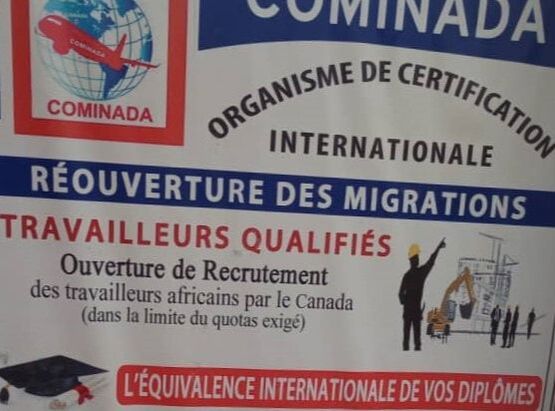|
|
|
As a young child watching most western soaps on the television, I thought that travelling to the West was the solution to all the problems of poverty. On arrival to Belgium, the imaginings of a stress-free life often do not align with the reality in the host country. As a Cameroonian, choosing to write on this topic stemmed from my observations and encounters when I just arrived in Belgium. Walking along the street on a fateful cold winter morning, I saw a familiar face, and I tried to greet and engage in a conversation as it’s the norm in Cameroon, but the friend was so busy that she did not notice me. On another occasion, our paths crossed again, but this time, after a class. In the course of our discussion, this friend expressed disdain that self-sponsored students were considered as economic migrants; meanwhile, they saw themselves as real students.
Among Cameroonians, the socio-cultural notion of 'bushfalling' is used to describe someone who has the intention to travel to the West, and a 'bushfaller' refers to someone who lives in the West. Travelling overseas or 'bushfalling' is an obsession for most young Cameroonians. Due to an increase in stringent migration policies as well as the rise in unemployment in Cameroon, the student route seems to be the most secure route to leave the country.
In our Identities article, ‘Bushfalling’: the ambiguities of role identities experienced by self-sponsored Cameroonian students in Flanders (Belgium), we argued that while in Europe, their dreams of a better life are challenged by the multiple role-identities they have to assume. Besides being ‘good immigrants’, they have to study hard not only to get their residence permits renewed but also as a way to fulfil their dreams of a bright future. Moreover, they have to support their families back in Cameroon – i.e. having their feet in two societies by engaging in transnational care (sending remittance and offering emotional support). These students creatively juggled, confirmed or questioned the multiple roles conferred to them as ‘bushfallers’.
Moreover, we acknowledged that there are commonalities between local and international students in combining work and studies. However, for international students, it is their migrant identities combined with transnational obligations that add to the conflicts they experience, putting the ‘student identity’ under extra pressure. Due to the temporality of the student identity, the students regarded the nature of work as being a ‘brain waste’ and physically and mentally exhausting. Thus, they placed more emphasis on their student identity as an escape from the misery they felt being ‘the other’ or ‘out of place’ in Belgium. Moreover, they had specific plans regarding their next-step after obtaining their diplomas. Some of the plans were to remain in Belgium (and learn Dutch), move to another country (with favourable integration policies) or return to Cameroon. The results of this study reveal that the desire for both education and migration options often go hand in hand.
Blog post by Presca E. Wanki and Ine Lietaert, University of Ghent, Belgium
Read the full article: Wanki, Presca E. & Lietaert, Ine. ‘Bushfalling’: the ambiguities of role identities experienced by self-sponsored Cameroonian students in Flanders (Belgium). Identities: Global Studies in Culture and Power. DOI: 10.1080/1070289X.2018.1475975
0 Comments
Your comment will be posted after it is approved.
Leave a Reply. |
|
Explore Identities at tandfonline.com/GIDE |
|
The views and opinions expressed on The Identities Blog are solely those of the original blog post authors, and not of the journal, Taylor & Francis Group or the University of Glasgow.

